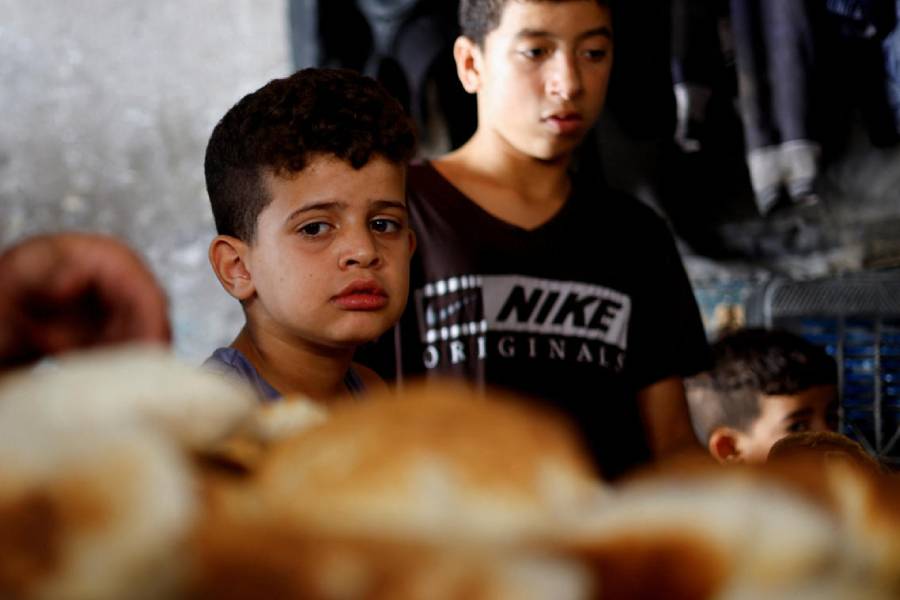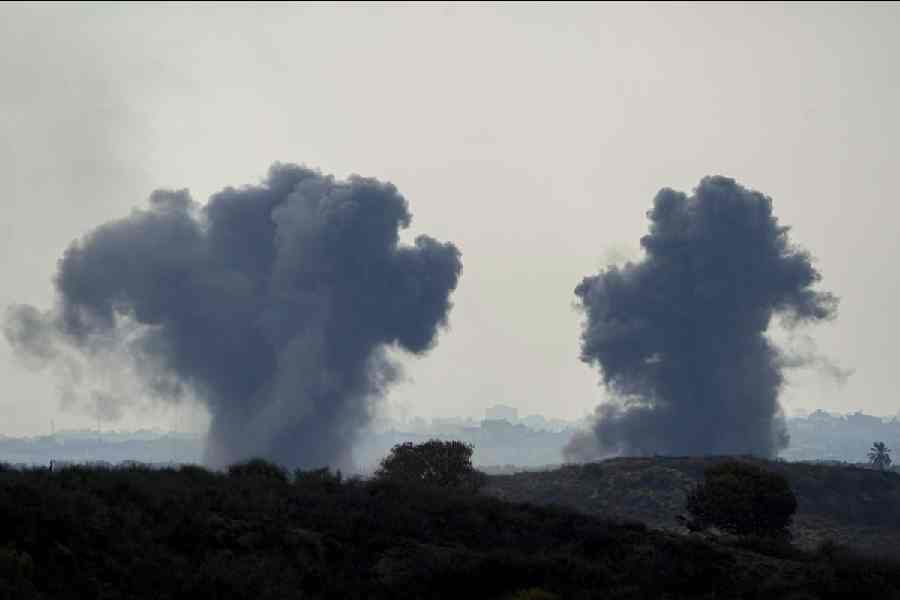- Palestinians report heavy Israeli airstrikes in southern Gaza, where they were ordered to seek refuge, reports AP
With a diplomatic breakthrough increasingly uncertain, the Gaza Strip faces an intensifying humanitarian crisis with more than half a million people fleeing their homes for the enclave’s south amid ongoing Israeli airstrikes and shortages of critical supplies like water and fuel.
Both Israel and Hamas dismissed talk that they had agreed to a cease-fire — humanitarian or otherwise — while the Biden administration sought to head off a wider conflict. It warned Iran against escalation through back-channel messages with intermediaries in Qatar, Oman and China, its point backed up by a pair of aircraft carriers now steaming towards the eastern Mediterranean and additional land-based warplanes dispatched to the region.
The Israeli military has not indicated when an invasion could begin, but President Joe Biden has also told Israel not to reoccupy Gaza even as he endorsed the goal of destroying Hamas, the militant group that controls the blockaded territory.
In one sign of the challenges facing a ground invasion, the Israeli military said on Monday that at least 199 people had been taken hostage by Hamas during its October 7 attack, a higher number than the initial estimate of 150 hostages offered by one senior Israeli military official last week. The people are believed to be held in Gaza, where Hamas operates an extensive network of tunnels and safe houses.
Israel says it has killed at least six senior leaders of Hamas in a campaign of retaliatory airstrikes launched in the aftermath of the attack that began on October 7 and killed more than 1,300 people. But the strikes are exacting a growing toll on Gaza’s people: The Palestinian ministry of health said on Monday that 2,750 people had been killed and 9,700 wounded.
As Western officials tried to secure safe passage for foreign passport holders out of Gaza, the vast majority of the enclave’s more than 2 million people had nowhere to go as conditions grew ever more dire. Gaza’s interior ministry said no water had reached the enclave in 10 days, despite remarks from the White House on Sunday that Israel had agreed to restore water to the southern part of the strip. Shortages of water, fuel and other supplies have worsened as Gazans have fled the northern part of the enclave in response to an Israeli warning to evacuate.
*Israel continued to bombard Gaza, with the local news media saying on Monday that the strikes overnight were among the most severe in the war, which is now in its 10th day. More than 450 deaths and 850 injuries were recorded in Gaza on Sunday, according to Palestinian authorities.
*US secretary of state Antony Blinken said on Sunday that the Rafah border crossing with Egypt would reopen, raising hope that food and medicine could be brought into Gaza and foreigners could get out. The US embassy in Jerusalem told American citizens in Gaza on Monday to “move closer” to the Rafah crossing if they believed it was “safe” to do so.
But hours later, the scores of people who had gathered on the Gaza side of the crossing, toting what they could carry in suitcases, were stuck waiting as diplomatic efforts for a solution floundered.
*Amid mounting concerns that the conflict could spread, Israel’s military said it would evacuate people who live within 2km of the border with Lebanon.
Clashes have broken out there in recent days between Israel and the Hezbollah, the powerful Iran-backed group that dominates southern Lebanon, with both sides trading fire across the border.
New York Times News Service











